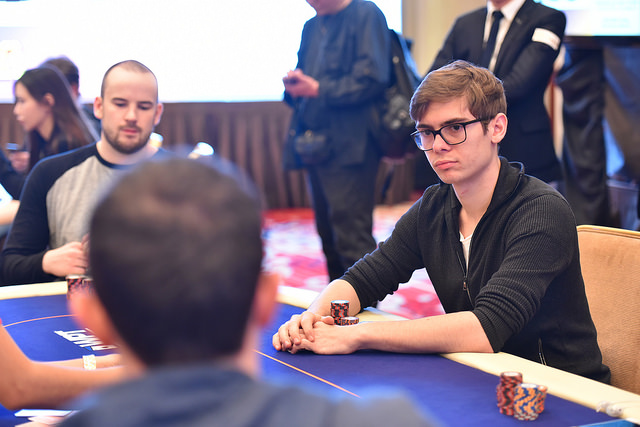Fedor 'CrownUpGuy' Holz Discovering His Ikigai


“Every single one of us should strive to discover his reason for being, his Ikigai.” That’s the sticky you’ll find when you look at Fedor ‘CrownUpGuy’ Holz‘s Twitter feed. And for Holz, poker might not be the path to his Ikigai.
“It’s a Japanese idea of what should be the goal of your life,” Holz said, pointing to the Venn diagram that explains what the concept of Ikigai is all about. “You should be doing what you get paid for, what you love to do, what you’re skilled at, and what has meaning in the world. If you find something that combines all of these four things, you should do it.”
Passion, mission, profession, and vocation are all part of Ikigai. However, for Holz, poker might not be the key to achieving Ikigai, at least right now.
“Poker is not that for me because it’s missing the part of doing something good,” he said. “I think that’s a reason why poker players do a lot of charity work. I also think that’s a reason a lot of players quit at some point – they feel like there’s something missing.”
It’s not like Holz hasn’t been successful in poker. In 2014, he won the PokerStars Sunday 500 outright for $75,000. That was just a tune-up, though, for the World Championship of Online Poker Main Event, one of the biggest online tournaments of the year. He took that down for $1.3 million. That remains one of the largest online paydays ever.
After his WCOOP Main Event win, he found the winner’s circle of the Full Tilt Sunday Major and PokerStars Sunday 500 once again. More recently, the German took down the WPT Alpha8 event at Bellagio and the $200,000 buy-in Triton Super High Roller at Solaire Resort in the Philippines.
Despite everything, Holz doesn’t feel like he can realize Ikigai in poker.
“Everyone is different, but I feel like I can’t have it in poker,” he said. “This environment changes so much, though. Right now, if it stays like this, I would definitely not play as much as I do right now. I think I’d take some time off. Online, the stakes are not high enough to consistently play something. There’s nothing more to reach pretty much. Poker is not really growing online. If Americans come back, it could be huge. There are a lot of things we don’t know about right now.”

Holz was just getting into poker when Black Friday hit in 2011. He recorded his first live score the following year in Rozvadov. He’s seen the changes in the poker industry first-hand since PokerStars, Full Tilt, Absolute Poker, and UB left the American market five years ago.
“The setup was better around Black Friday because the industry was carried by what happened in the years before that,” Holz said. “Now, it’s all changing to the new set of sites. Everyone thought there was so much money in poker, but there’s not anymore. Now, it’s going on a slightly upward trend again. People understand that we can’t just spew around money. It’s on a good trajectory, but I’m not hooked right now to continue for the next 20 years.”
In order to find a profession that satisfies Ikigai’s demands for something “that the world needs,” Holz has turned to coaching.
“I really like coaching,” he said. “That’s what I’ve been doing. I really like the psychological side of it too. I feel like a lot of my coaching drifts into life coaching. It’s about going to the root of the problem and not just getting poker coaching. I really enjoy that and can see myself doing something like that.”
Holz has received life coaching and now notices a major difference when he sits down at a table. You can tell it when he plays. He’s confident, composed, and feels comfortable no matter who he’s up against.
“There’s a big difference when you get life coaching,” said Holz. “Most of the time, people understand their problem in some kind of way. But, problems are such that you can see them in so many different ways. Someone saying something in a certain way can change your view completely. You somehow understand what your issue is, but you can’t explain it or express it, but if someone talks to you about it, they’ll help clarify it.”
For Holz, life coaching and poker coaching yielded one important leak in his game, which has probably already netted plenty to his bottom line. “I sometimes tried to win hands that I shouldn’t be winning or win pots that I shouldn’t be winning,” Holz said. “Like my coach said, it’s not about winning every pot. If that means folding, you won the hand that way. That helped me so much to think that I can fold 50 times in a row. If you win the pot, you might actually lose the hand.”




